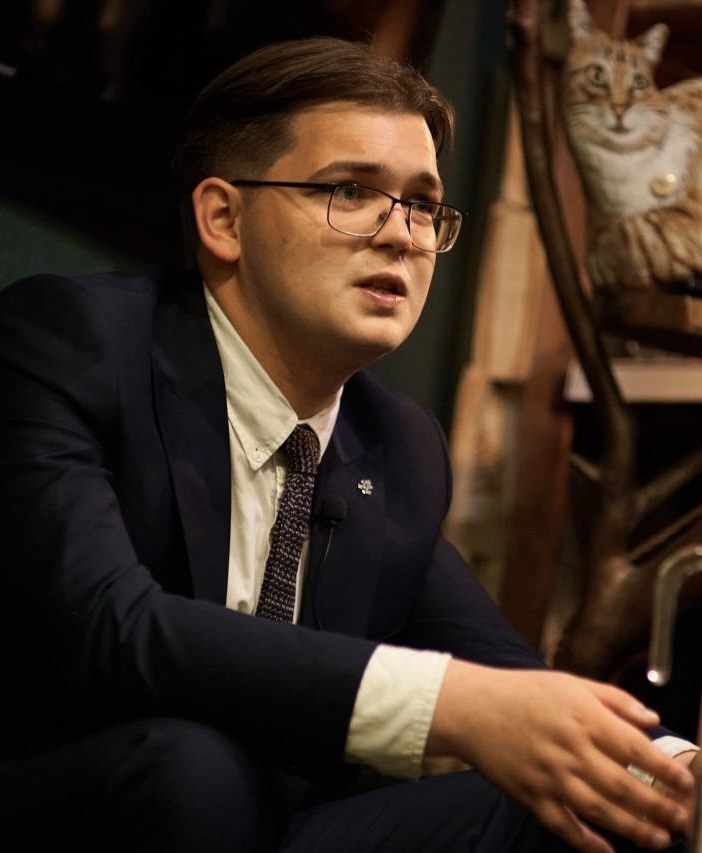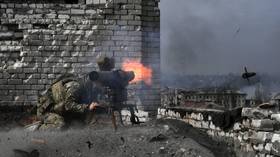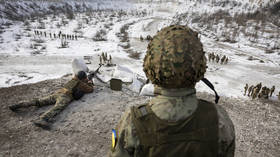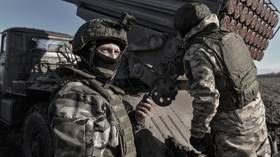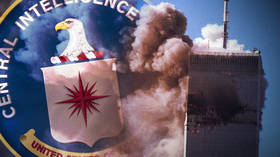Donbass soldier Andrey Korobov-Latyntsev: Here's my chilling warning about where the Russia-Ukraine conflict can lead
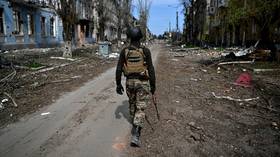
For a philosopher, the military path – the path of war – is quite natural. In reality, such a scholar is always engaged in this process – the conflict of ideas. He understands that war is the forefather of all things and since he is looking for the origin of everything, turning to war, both as a subject and an element of existentialism, is natural. Of course, it is also a great honor for me to be part of the armed forces of Novorossiya and the Donetsk People’s Republic.
There were a lot of theoretical discussions on this before the start of the military operation in Ukraine, last year, when the new realities of combat first emerged on such a grand scale. There is a military saying that generals always prepare for the previous war. So, in a way, no one knew how this would look. Of course, the robotization of fighting develops new means of combat and warfare. This especially concerns drones, intelligence capabilities, and the range of weapons.
However, in existential terms, it doesn’t work like ‘Fallout.' As German military theorist Carl von Clausewitz said, war is a chameleon. Its external appearance changes all the time, but its inner core and essence remain the same. It always means risk and involves questions like death, victory, and defeat. These key factors never change.
Indeed, modern-day soldiers have more technical means at their disposal to kill the enemy, but the risk remains the same as always. The existential dimension of war doesn’t change either. Even if one day, there will be no human combatants on the battlefield and only drones will fight, it will retain its essence because there will always be a risk of defeat.
The ‘just war theory’ is ancient. A number of researchers ascribe it to Plato, and it was formally established by Cicero in Ancient Rome. The key question posed by the just war theory is how to reconcile the realities of war with high morality and even religious commandments, as St. Augustine and Thomas Aquinas attempted to do. The theory itself proceeds from rather simple assumptions. In order for a war to be called ‘just’, it must meet specific criteria.
First of all, a struggle is considered just if it has a just cause. Let’s say you were attacked and you are defending your land – this motive perfectly justifies the fighting. This criterion is given by Cicero and is repeated by all the philosophers. But this is not enough. After all, one may have just reasons for starting a war, but then go on to conduct it in an unjust manner. At this point, there exists a difference between ‘jus ad bellum’ (right to war) and ‘jus in bello’ (rights at war). Examples of conducting war in a just manner include not killing civilians (people without weapons and not involved in the war) and not torturing prisoners of war. In other words, not doing any of the things that modern Ukraine is doing.
Moreover, there is another criterion that appeared later in the 20th century. It is called ‘jus post bellum’ (rights after war). This means that the world after the war should be better than the world prior to the war. Let’s say a country is not satisfied with the existing status quo and starts a war. For example, in 2003, the Americans said that they were worried about weapons of mass destruction in Iraq. Washington invaded, plunged the enemy into living hell and believed that the result of the war was better than the pre-war conditions. It’s amusing to analyze the wars started by Western countries in the second half of the 20th century based on the ‘jus post bellum’ criterion – you aren’t likely to find one case that fits the West’s own theory of a just war.
The answer to how the concept of just war has evolved is that a sort of philosophical fall has taken place. From an independent, philosophical phenomenon, the just war theory has become a servant – not merely of politics, but of the aggressive Western globalist agenda. Today, this theory simply caters to the interests of the collective West. For example, it may be easily applied to Russia’s operation in Ukraine. But we see that the West won’t share our vision.
Another important factor is that the just war theory is no longer a philosophical question but a legal one. After all, justice is an ethical criterion, but the just war theory is essentially a ‘legal’ theory of war. If we take the time to read the modern theorists of just war, we will see that they are mostly concerned with legal, not ethical issues. They give the players a set of rules to follow. But these rules can be applied to anything else, even to business. These theorists do not care about the war as such – its moral significance, ethics, metaphysics, or ontology. To my personal grief as a philosopher, they miss all these points.
Today, the question of a just war has become the main question of the entire philosophy of war. No one pays attention to the essential characteristics.
The attitude towards conflicts as a natural course of events began changing after World War I. This conflict concluded a historical era which we call the modern era. The basic assumptions and dogmas of modernity such as humanism and rationalism collapsed at the time. Man was no longer seen as the pinnacle of civilization but became only a means, and this ‘means’ was sent to die on the battlefields en masse. It became apparent that reason will not lead humanity to a bright future and this in turn led to the collapse of rationalism. As Russian writer Fyodor Dostoevsky said, reason is a scoundrel, it helps humans create concentration camps and machines for killing their own kind on an unprecedented scale.
World War II propagated this evil to such an extent that it no longer fit into any ethical system. This is why philosopher Theodor Adorno wonders whether poetry is possible after Auschwitz. Surely, it is physically possible, but the question implies that there is a huge problem of understanding evil in the new reality. After WWII, people were greatly traumatized by the scale of human losses and the scale of evil. That is why wars weren’t formally declared after 1945. In a legal sense, there were no more wars, there were only ‘military operations’, ‘conflicts’, and so on.
I believe we are gradually approaching the heated phase of a new global conflict leading to a clash of entire armies, as we are now seeing in Ukraine. Unfortunately, we are turning back to the former definition of war – a war of peoples, a clash of civilizations. Beyond the sluggish hybrid format, it is emerging as a global conflict involving many parties. That’s the direction we’re heading in, and so far I see no prerequisites for turning back.
On the one hand, from the latter half of the 20th century, people became more united, they wanted to feel responsible for their common destiny. But on the other hand, what kind of unity are we talking about when already in 1946, UK Prime Minister Winston Churchill declared the Cold War during his Fulton speech.
Immediately after the act of Germany’s unconditional surrender was signed, the former allies began planning military actions against the USSR. It’s more appropriate to say that the war never ends, it just takes on new forms.
In a sense, however, the Cold War was a period of detente after humanity’s traumatic experience of WWII. This may sound like blasphemy, but during the Cold War, world leaders were seeking more civilized methods of confrontation. Whereas today, these methods no longer work and war is becoming total and all-encompassing. It is primarily a war of ideas. As long as contradicting ideas exist, this war cannot be over.
The ontology of combat supposes that as long as there are ideas, wars will go on. If ideas exist, so does conflict. As long as there is a contradiction in the Platonic world of ideas and there are people who are willing to defend their ideas, die, and kill for them, there will be wars. At the end of the 20th century, philosopher Francis Fukuyama believed that humanity was ready to enter into peaceful coexistence since the victory of one idea over another had finally taken place. Only one winner remained, there was no one to fight anymore.
Reconciliation is what happens in classic warfare. The war ends with an agreement. I’d like to believe that there is still room for negotiations, but experience shows that the West is simply not up to it today. You know, Carl Schmitt defined such a notion as an “absolute enemy.” This is an enemy with whom you can’t negotiate, since he has only one goal: total annihilation. Not necessarily physical annihilation, but primarily the destruction of self-identity. If it is possible to conclude an agreement with such an enemy, it will be very short-lived and you will soon be deceived. The absolute enemy is not capable of dialogue since he sees no point in it.
Today, the West sees no point in negotiating with Russia. Western elites believe that their truth is absolute and nonnegotiable. In a way, this is a unique situation the likes of which we have not seen in human history. This conflict is final and absolute and it has a strong eschatological background. This is a war of ideas and only ideas will win in this war.
The statements, views and opinions expressed in this column are solely those of the author and do not necessarily represent those of RT.
